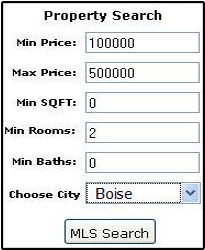There are many professions in real estate beyond working as an agent for buyers and sellers. Management can be a lucrative field with its market growing since 2009, but it can be a little overwhelming.
Wondering if property management might be the right move for you? Here are five basic skills, strategies, and tips that you’ll need when pursuing management on your path to success.
- Get Ready to Handle a LOT of Data
Managing property means filling a lot of different roles—80% of managers are involved in maintaining or repairing property as well as collecting rent! You can be checking on maintenance, balancing books, doing background checks, updating rooms and listings… the list goes on! That’s why it’s essential to have all the right data management tools ready when you start.
Know what you will be using and be comfortable using it. Whether you’re using good old Excel spreadsheets or fancier software like Landlord Vision, you need to know how to store your data and regularly update it. Security software like LifeLock is a good call too! - Know How to Identify a Promising Tenant
At the end of the day, much of property management boils down to three parts: 1) finding responsible tenants who can afford the property, 2) collecting the agreed rent on time, and 3) ensuring that the property maintains its value while being utilized. The difficulty of parts 2 and 3 often depends on how well you can secure quality tenants in part 1.
Finding the right tenants means taking up the role of an investigator—you need to be patient and thorough as you look at applicant’s backgrounds. Ask for references from previous landlords, check their credit scores, and search for any criminal records or evictions. A small, non-refundable fee is a good way to fund this research process and it also keeps unserious tenants from taking up your time.
Make sure to be very clear concerning all the rules, especially regarding pets, damages, and when rent is due. Emphasize anything that could change the kinds of tenants who are interested, or any rules that people might want to fudge or avoid bringing up. You’ll be able to identify applicants who are uncomfortable with your expectations, and build trust with the applicants who are fine with the rules. - Communication is Key (With Tenants AND Owners)
Working as a property manager means being the middleman between owners and tenants. Never forget that the owners are your clients, even if you’ll be doing most of the interacting with the tenants. You need to build trust with both sides, and that means regular communication.
If tenants reach out with questions or report issues, it’s your job to get back to them with useful, timely responses. It’s also good to be proactive and check in with tenants—you don’t want to “loom” over them, but a regular check in to make sure everything’s going fine can build respect.
Everything is going smoothly with no problems? Let the owner know. There’s some minor issues with tenants or maintenance? Let the owner know. There’s a huge discrepancy in the accounts and someone knocked a wall down? Let the owner know. Always be as transparent as possible with your clients—it’s their property and they need to be informed what’s going on. - Ask for Referrals and Reviews
Hopefully you’ll be able to maintain a low rate of turnover while managing your properties, but sometimes tenants have to move out for reasons that you can’t control. You want to make sure that you’ve got leads and incentives to bring in new tenants when this happens.
Navigating real estate can be tough, especially when prices are high, so having a quality reputation matters—nobody wants to be taken advantage of. If your tenants are happy, they’re more likely to recommend friends and associates they would like to be neighbors with. You can even set up a referral credit as an extra incentive! Don’t be afraid to ask for reviews on Facebook, Google, Zillow, or other directories either. - Be Consistent
A little bit of experimentation is fine when you get started—and sometimes you’ll want to try out new management strategies to stay competitive—but it’s important that you are consistent with your rules, your expectations, and your interactions. It reflects poorly on your management if you efficiently solve issues for one tenant, but completely ignore another. Likewise, clients won’t be happy if you’re on top of the bookkeeping one month, and then completely let it slide later.
Consistency means interacting with tenants and clients without favoritism, knowing how to create regular reports with balance sheets and P&L statements, and it means sticking to your own professional standards. Nobody wants to work with a manager who shirks their duties.
Ready to learn more? If this sounds like a description of your dream job, then get ready to take the plunge and start learning how to be the best property manager on the market.
Sign up for the Boise Real Estate School course on Residential Property Management Essentials and explore the basics of contracts, property types, screening tenants, and more!







